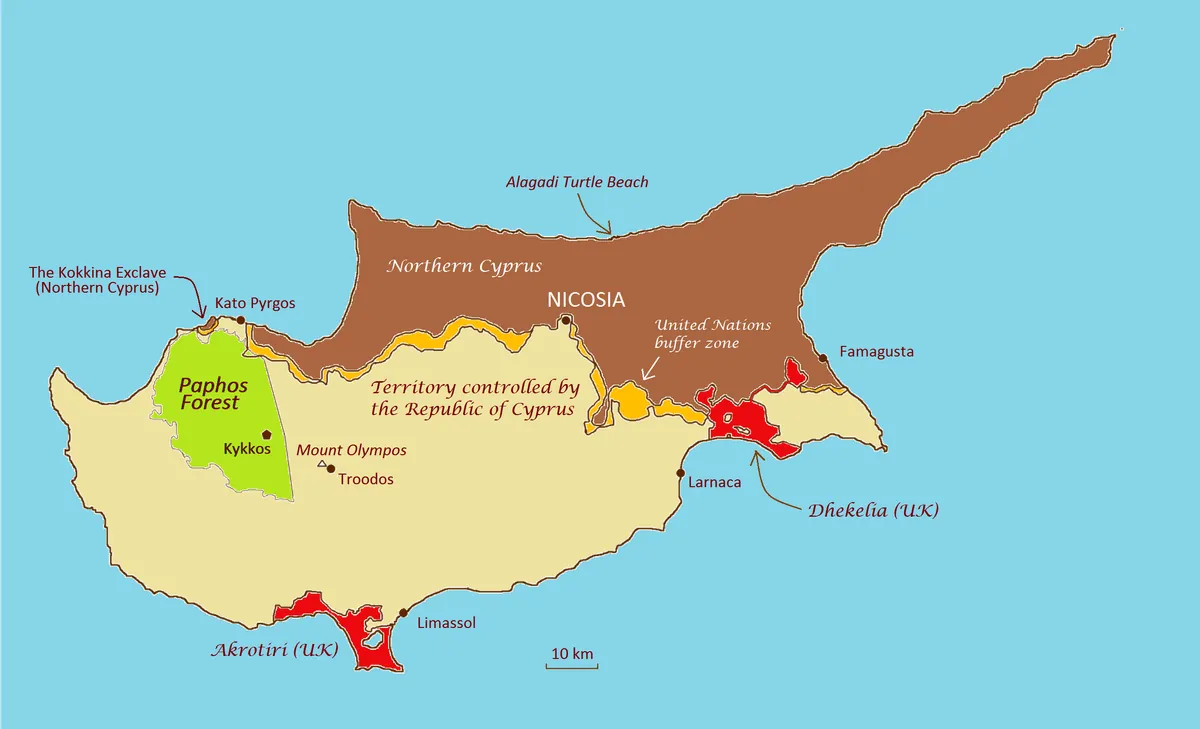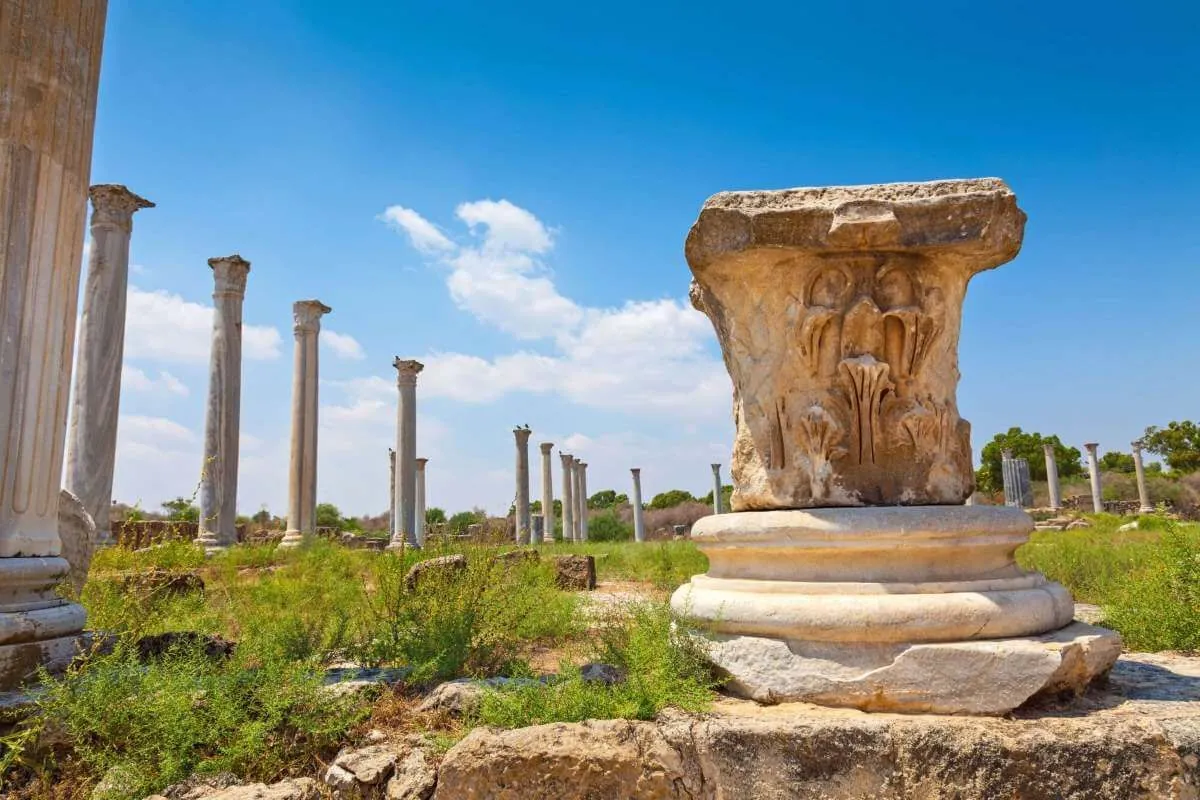Turkey Criticizes US-Cyprus Defense Pact Amid Ongoing Island Division
Turkey condemns US-Cyprus defense cooperation roadmap, citing concerns for Turkish Cypriots. The move complicates UN-led efforts to resume peace talks on the divided Mediterranean island.

Turkey has expressed strong disapproval of a recently signed defense cooperation roadmap between the United States and the Republic of Cyprus. This development, occurring approximately one year ago, has raised concerns about its potential impact on the long-standing division of the Mediterranean island.
The Turkish foreign ministry stated that these actions could undermine the neutral stance of the USA towards Cyprus and hinder efforts to achieve a fair and sustainable resolution to the Cyprus issue. This statement came in response to the signing of the cooperation roadmap in Nicosia on September 11, 2023.
Cyprus, the third-largest island in the Mediterranean Sea, has been divided since 1974 following a Turkish invasion prompted by a brief Greek-inspired coup. The island's rich history dates back to the 10th millennium BC, and it has been under various administrations, including British rule from 1878 to 1960.

The current political landscape of Cyprus is complex. The internationally recognized Republic of Cyprus, a member of the European Union since 2004, controls the southern part of the island. The northern region is administered by a breakaway state recognized only by Turkey. This division is marked by the "Green Line," a buffer zone monitored by the United Nations Peacekeeping Force in Cyprus (UNFICYP), established in 1964.
Peace negotiations between the Greek and Turkish Cypriot communities have been at a standstill since 2017. The Turkish Cypriot side insists that a resumption of talks depends on the acceptance of their equal sovereignty with the Greek Cypriot government.
The US-Cyprus defense cooperation roadmap, signed approximately one year ago, reaffirms the commitment of both parties to collaborate on international security concerns. However, Turkey views these steps as detrimental to the security of the Turkish Cypriot community.
Despite the ongoing political tensions, Cyprus remains a significant economic and cultural hub in the Mediterranean. It boasts the third-largest economy in the European Union by per capita income and attracts over 4 million tourists annually. The island is known for its diverse cuisine, influenced by Greek, Turkish, and Middle Eastern culinary traditions, as well as its rich copper deposits, which gave Cyprus its name.
As efforts continue to find a resolution to the Cyprus issue, the international community watches closely. The island's strategic location and complex history make it a focal point for regional diplomacy and security considerations in the Eastern Mediterranean.
"These steps ... undermine the neutral USA position towards the island of Cyprus and make it more difficult to reach a just, lasting and sustainable settlement of the Cyprus issue."
The ongoing situation in Cyprus highlights the challenges of resolving long-standing territorial disputes and the delicate balance of international relations in the region. As the island moves forward, it continues to grapple with its divided status while simultaneously showcasing its rich cultural heritage and economic potential.


































